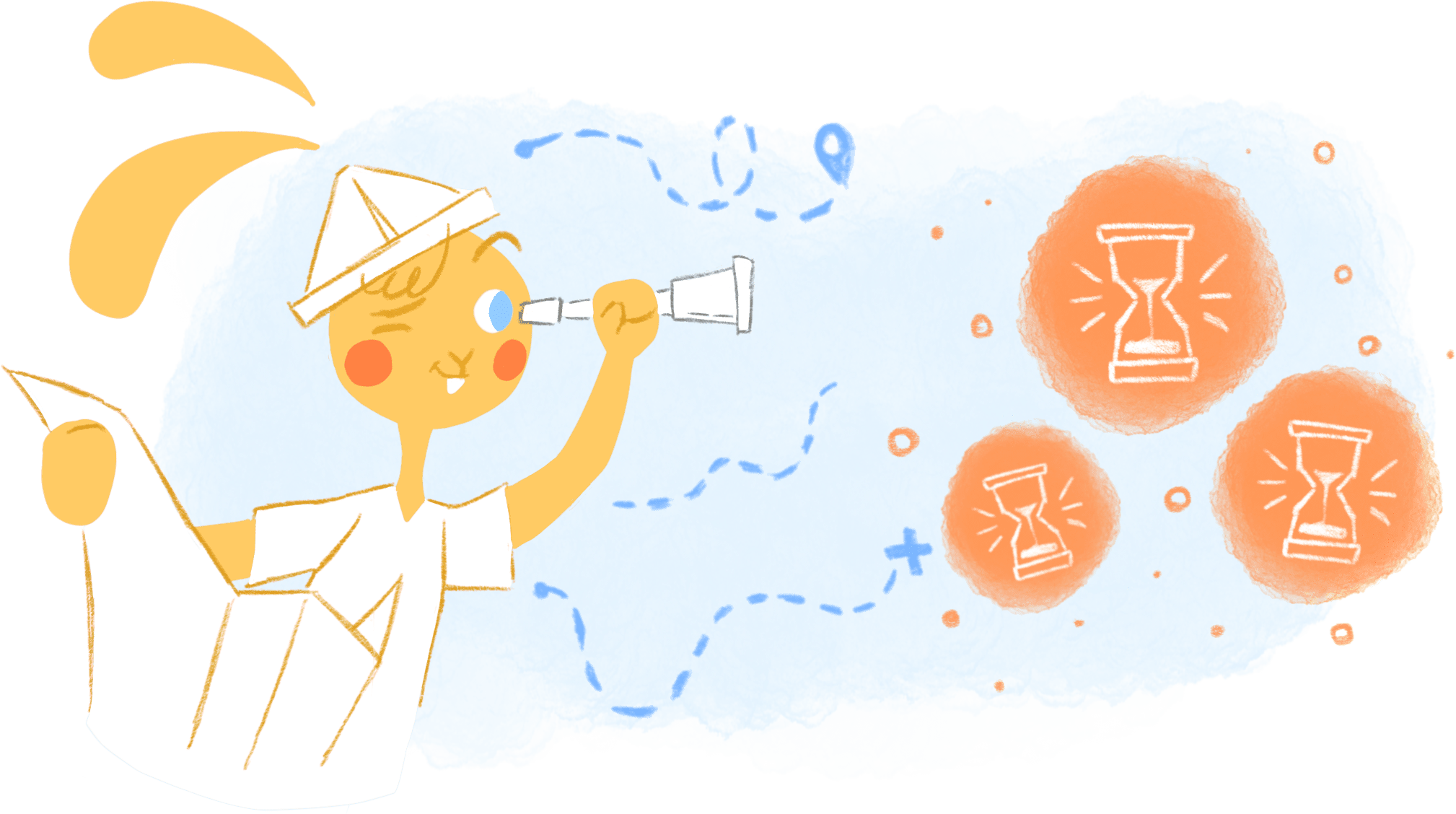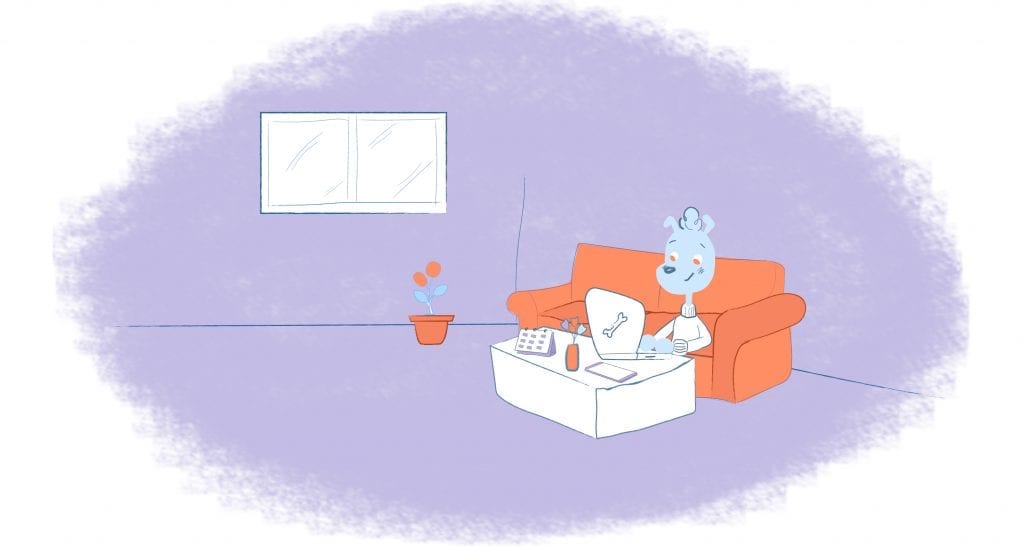

It wasn’t all that long ago that the term “work-life balance” was all the rage. But, how exactly did the business world view the concept?
For many, it’s recognizing that an employee’s work experience is only one aspect of their lives? The other consisted of family, friends, hobbies, and overall health. The objective of work-life balance is to ensure that work doesn’t interfere with life outside of work too much. When this goal is met, employees will be happier and more productive.
“Work-life balance” may seem like a relatively new concept, but it first became popular during the 1970s and 1980s. It was actually stressed by baby boomers who attempted to achieve a balance between work, family, and other areas of their lives. The changing experiences of generational groups, however, have led HR leaders to reassess the term. Generation X, according to Forbes, has placed a high emphasis on achieving a balance between work and family. It also uses PTO to focus on family life and non-work activities.
But, as millennials have entered the workforce with gusto, Forbes adds that “they are more interested in finding a career path that will support their’ lifestyle,’ which in this context means their life outside of work.” In other words, younger age groups have focused on pursuing jobs and employers that support the lifestyle they desire. Rather than securing a job and then creating a life around its hours, income, and other aspects, this approach inverts the conventional approach more associated with Boomers.
As a consequence, concepts like “work-life integration” have become increasingly popular. But, maybe we’re overthinking this. “Rather, we simply must manage our energy,” asserts Gila Vadnai-Tolub for McKinsey.
“We must learn critical skills to balance our energy levels to ensure we alternate high-performance periods with resourcing times,” adds Vadnai-Tolub. “Athletes do this by alternating training with resourcing activities, and we must do the same via activities that give us energy.”
The Primary Types of Energy
“There are four primary types of energy: physical, mental, emotional, and spiritual,” states Vadnai-Tolu.
- Physical energy. Most of us are familiar with this type. Generally speaking, it provides us with an indication of how tired we feel and how well our bodies feel. It’s for this reason that we understand we need to walk occasionally. However, it is not only long-term fitness plans that matter, but also daily refreshment moments.
- Mental energy. This is often obtained from tasks that require analytical and cognitive abilities. For example, you may be physically fine but mentally exhausted after spending a long time concentrating. Each of us has specific mental tasks that drain or lift us.
- Emotional energy. To achieve this, one must have connections with others – from giving and receiving love to helping a friend or colleague deal with a problem. Consequently, negative emotions such as fear, frustration, and anger drain energy and damage performance, she says.
- Spiritual energy. When we do something we love, something that speaks to our spirit, we receive wisdom, compassion, integrity, joy, love, creativity, or peace as a result. For instance, it’s a common experience to become mentally and physically tired while working on a project. Nevertheless, we’re able to keep going because it is something of fundamental importance.
Being aware of these can help you better manage your energy throughout the day. For example, when you recognize that you’re physically or mentally zapped, you would take a break to recharge.
What’s more, you can find ways to give yourself an energy boost. For example, let’s say that you’re frustrated with how long a project has taken you to complete. Reminding yourself of the meaning behind your work or collaborating with a supportive college could reduce those negative feelings and give you a jot.
Why It’s Important to Manage Your Energy
You may be thinking that managing your energy isn’t all that big of a deal. After all, you can just brew a pot of coffee to wake yourself up. While that might give you a temporary boost to wrap up a tedious task, truly managing your energy has the following benefits, according to Karen Kallie R.N., M.A.C.P;
- Accelerated change. Working energetically gets at the root of problems, makes them easier to resolve, and empowers you to provide positive, quick, and practical solutions, really a change from within.
- Diminished resistance. Often, our attempts to change are stymied by the struggle, thereby impeding the flow of change. Energy work can aid in eliminating that struggle. When using energy, we can experience ease and grace instead of force and willpower.
- The discipline of the mind. A more focused mind helps us channel our energy more efficiently towards our goals and fulfill our desires.
- Enhanced clarity. As a result of eliminating emotional turmoil, negative attitudes, and exhausting thought patterns, one can perceive reality more clearly, oneself and others.
- Improved intuition, creativity, and spiritual experience. By strengthening and removing old memories, beliefs, and maladaptive patterns from the overall energy system, the entire system functions better, enabling higher levels of function to expand.
- Clearing energy blocks from our systems creates an opening for positive growth. To prevent ourselves from getting sucked into repetitive cycles filled with what we do not want, we create more of what we want in life. When our minds and bodies are relaxed, we become more open to allowing greater flow, which also helps us to quiet our ego and recognize other energies.
How you Can Increase Your Energy for Happier and More Balance Life
Establish fixed schedules for work.
When will your workday begin and end? Ideally, this should be based around when you’re most productive, aka your biological prime time. While not always possible, when you can establish a work schedule, you can avoid energy-depleting distractions, like emails or office visitors.
“Use technology to your advantage by using the various apps and digital reminders that make it more difficult for you to break your own rules and access things outside of work time,” advises Dr. Beurkens. “Although technology can feel like it’s taking over our lives and infringing on our work-life balance, we can actually use it to our benefit in helping us stick to the boundaries we know are healthy for us.” For example, you may choose to set time limits, turn off your active status, or even set up an auto-responder to let others know you won’t respond outside your regular working hours.
You should also share your calendar with others. Of course, this doesn’t have to be everyone on your contact list. But, letting your co-workers or family members know when you’re on and off the clock prevents work-life lines from getting blurred.
Eat, drink, and be merry.
No, this isn’t a DMB plug. But, if “Tripping Billies” lifts your mood and energy, then go for it. So, instead, this covers the basics of increasing your energy.
You are what you eat.
With the proper diet, you can keep your body healthy, feel energized, and stay optimistic. Plus, healthy food can be tasty. And, personally, I enjoy learning and preparing new recipes.
Additionally, cooking healthy doesn’t have to be a time-consuming endeavor if you try the following;
- Get your hands on a cookbook featuring quick and tasty dishes, or look for health-conscious recipes online.
- Take advantage of ready-to-eat fruits and vegetables.
- You’ll find it easier to resist the temptation to order a pizza f you prepare a weekly menu and freeze meals in advance.
But, what exactly should you eat? As per the Dietary Guidelines for Americans, an optimal energy diet should include fruits, vegetables, lean protein, low-fat dairy products, and whole grains.
You should also consume various foods from various food groups to get the proper nutrients to help you stay energized throughout the day. You should eat fresh or frozen fruits and vegetables, especially dark, leafy vegetables, such as carrots and sweet potatoes, which are high in nutrients. For healthy protein options, fish and legumes are available in a variety of forms. In addition, eat three servings of whole-grain cereal, bread, rice, or pasta each day.
Stay hydrated.
Another benefit of eating healthy? You may be consuming water-rich fruits and vegetables, like tomatoes, oranges, and strawberries. That’s a simple way to ensure that you stay hydrated throughout the day.
In addition to water, green tea, Yerba maté, and coffee are also drinks that can stimulate energy. Just be careful not to overdo it with the caffeine. When the body withdraws from caffeine after consuming too much coffee, as an example, it can result in energy loss.
Also, it’s alright to have the occasional alcoholic beverage. “Moderate drinking seems to be good for the heart and circulatory system, and probably protects against type 2 diabetes and gallstones,” states the Harvard School of Public Health.
Promote happiness and creativity.
Having a positive attitude toward life enables you to tackle your tasks more effectively. Alternatively, stress can be exhausting and negatively affect your health. In addition, research shows stress can hinder creativity.
You can relieve stress by taking care of yourself and choosing creative outlets that you enjoy;
- Each week, dedicate some time to de-stressing and relaxing.
- If possible, enjoy some quiet time in the morning.
- Consider learning a new hobby or taking art classes if you’ve always wanted to take one.
- Decrease your exposure to negativity, like avoiding news overdose or hanging out with toxic people.
- Practice gratitude and do something meaningful daily.
- Enjoy everyday tasks. Some ideas would be making an ethnic meal for dinner, singing in the shower, learning a language during your commute, or gamification at work.
- Take walks outside — without your phone.
- Find ways to laugh, like watching funny videos or playing with your dog.
Get your body moving.
Feeling lethargic by the middle of the day? Have you ever felt exhausted by simple everyday tasks, such as grocery shopping or chores around the house?
According to the Physical Activity Guidelines for Americans, getting 150 minutes of physical activity each week can add to your energy instead of taking it away. Why? When you exercise, you relieve stress and tension, strengthen your muscles, and boost your endurance, which improves your ability to perform other physical activities more efficiently.
Restrict your sleep.
“If you think you may be sleep-deprived, try getting less sleep,” states Harvard Health Publishing. “This advice may sound odd, but determining how much sleep you actually need can reduce the time you spend in bed not sleeping.”
Sleeping with this process facilitates easier sleep and results in a more restful night’s sleep. And, here’s how you can do it;
- During the day, do not nap. If you do, keep it short and sweet, preferably under 20-minutes.
- Try going to bed a little later the first night and getting four hours of sleep.
- If you feel you slept well during the previous four hours, you may want to add another 15–30 minutes of sleep the following night.
- Continue to add little by little, as long as you are sleeping soundly on successive nights.
Enter the dream world.
“Dreams play a crucial role in some of our most important emotional and cognitive systems, helping us form memories, solve problems and maintain our psychological health,” writes Alice Robb, in “Why We Dream.” Dreaming has the power to make us fitter, happier, and smarter.
However, how can we harness the power of dreams?
Just remembering can be a huge help to keep your dreams alive. “Reminding yourself of your intention as you fall asleep can yield a bounty of memories in the morning,” Robb writes.
A dream journal, she suggests, should also be kept nearby. Then, upon waking, pause for a few seconds before writing down what you dreamed.
While dreams often affect us automatically, Robb argues that they are amplified when we experience them directly.
It’s possible to improve the quality of our sleep in subtle ways as well, such as avoiding alcohol close to bedtime, exercising regularly, waking up naturally, and limiting screen time. You can also stay in deep sleep mode by meditating before bed and keeping your room cold (between 60 and 68 degrees).
And, we should treat dreams “like the real and profound experiences they are,” Robb writes. “Let’s give them their rightful place in the world.”
Overcome negative bias.
“The negative bias is our tendency not only to register negative stimuli more readily but also to dwell on these events,” explains Kendra Cherry for Verywell Mind. “Also known as positive-negative asymmetry, this negativity bias means that we feel the sting of a rebuke more powerfully than we feel the joy of praise.”
For example, on the way to work, you get into a spat with your significant other. You then dwell on this for the entire day. Consequently, you get short with your co-workers, make poor decisions, or can’t focus on the task at hand.
Our ancient ancestors had to pay “attention to bad, dangerous, and negative threats in the world was literally a matter of life and death,” adds Cherry. “Those who were more attuned to danger and who paid more attention to the bad things around them were more likely to survive.” Today, however, this can strain relationships, harm your reputation, and make it difficult to be optimistic.
The good news? You can overcome the negative bias by;
- Stop the negative self-talk. Instead of dwelling on past mistakes, you cannot change; consider what you have learned and what you will apply to the future.
- Reframe the situation. Find a way to reframe the events in a more positive light when you interpret something negatively.
- Establish new patterns. If you find yourself dwelling on negative things, try to distract yourself with an uplifting activity like listening to uplifting music or going for a walk.
- Savior positive moments. Take a moment to appreciate the good things that happen in your life. Think about the wonderful feelings the memory evokes several times in your head.
Make work a series of sprints.
Unable to think clearly? You’re overloaded and have the fragmented attention of a distracted person. So how can you remedy this? Sprint into your most essential tasks selectively.
This idea comes from engagement consultant Tony Schwartz. In the New York Times, Schwartz argues that since quality work helps you concentrate, and you can only focus for a short time, you should be aware of how and when you focus on doing your best work.
“… it’s better to work highly focused for short periods of time, with breaks in between, than to be partially focused for long periods of time. Think of it as a sprint, rather than a marathon. You can push yourself to your limits for short periods of time, so long as you have a clear stopping point. And after a rest, you can sprint again.”
That last night is crucial. As a renewable resource, your mental energy does not replenish on its own. You must be responsible for maintaining it. FYI, using your phone isn’t “taking a break,” either. Instead, go for a stroll, daydream, or talk to a colleague,
Take the day off.
Do you have unused vacation time from your job? If so, make sure to take use them up!
The benefit of taking days off regularly is that stress can be reduced, and burnout can be avoided. This will give you a chance to clear your head, reflect, and recharge. It may even be beneficial to take a mental health day where you do nothing except cater to your health and wellbeing — even if it’s just spending the day reading in your PJs.
Reach out for help.
As opposed to neglecting or suppressing negative thoughts or memories, address them by talking to someone. By expressing your feelings out loud to an understanding person, you’ll be able to release what’s unspoken. What’s more, the other party, whether it’s your spouse, co-worker, mentor, or therapist, can help you develop solutions to your problems.
Image credit: Jill Wellington; Pexels; Thank you!











John Rampton
John’s goal in life is to make people’s lives much more productive. Upping productivity allows us to spend more time doing the things we enjoy most. John was recently recognized by Entrepreneur Magazine as being one of the top marketers in the World. John is co-founder and CEO of Calendar.